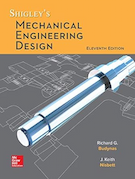The Importance of Ethics in Engineering Practice
Engineering is a field that has a profound impact on the world we live in. From the structures we live and work in, to the technologies we rely on for communication and transportation, engineers play a critical role in shaping our society. With such significant responsibilities, it is essential that engineers maintain the highest ethical standards and act with integrity in all their professional dealings.
Ethics in Engineering: Principles and Values
Ethics in engineering refers to the principles and values that govern the behavior of engineers in their professional lives. It encompasses a wide range of issues, from ensuring public safety and protecting the environment, to avoiding conflicts of interest and maintaining professional standards. A strong code of ethics helps to ensure that engineers act in the best interests of their clients, the public, and the environment, and that they maintain the trust and confidence of the broader community.
The Importance of Public Safety in Engineering Ethics
One of the most important aspects of engineering ethics is public safety. Engineers have a responsibility to ensure that the structures, systems, and technologies they design and build are safe and secure, and that they do not pose a threat to public health or the environment. This means taking into consideration factors such as building codes and regulations, and performing regular safety inspections to ensure that structures and systems remain functional and safe over time. For example, civil engineers must ensure that bridges, highways, and other infrastructure are built to withstand natural disasters, such as earthquakes and hurricanes. Similarly, mechanical engineers must ensure that the machines and equipment they design and build are safe for users and operators.
Avoiding Conflicts of Interest in Engineering Practice
Another key aspect of engineering ethics is avoiding conflicts of interest. Engineers must maintain their professional integrity by avoiding any actions that may compromise their judgment or lead to unethical or illegal behavior. For example, they must avoid accepting gifts or favors from clients or suppliers that may influence their professional judgment, and they must be transparent about their relationships with stakeholders. Conflicts of interest can arise when engineers have personal or financial interests that may conflict with their professional obligations. For example, an engineer who owns shares in a company that is bidding for a project may be biased in favor of that company when evaluating proposals.
Maintaining Professional Standards in Engineering Ethics
Professional standards are another important aspect of engineering ethics. Engineers must maintain high standards of technical excellence and quality in their work, and they must adhere to strict standards of professionalism and impartiality. This means being honest and transparent about their qualifications, skills, and experience, and avoiding actions that could tarnish their reputation or compromise their professional credibility. For example, engineers must avoid plagiarism, falsification of data, and other forms of academic or professional misconduct. They must also avoid engaging in discriminatory practices, such as hiring or promoting employees based on their race, gender, or other personal characteristics.
Promoting Ethical Behavior through Mentorship
One of the most effective ways of promoting ethical behavior in engineering is through mentorship. Young engineers benefit greatly from the guidance and advice of experienced professionals who can help them navigate ethical dilemmas and provide a framework for making ethical decisions. Mentors can also help to instill a sense of responsibility and accountability in young engineers and can provide them with the skills and knowledge they need to succeed in their careers. Mentors can also help to reinforce the importance of ethical behavior by setting a good example and demonstrating the benefits of acting with integrity.
Conclusion: The Role of Ethics in Engineering Practice
Ethics plays a vital role in engineering practice. By maintaining high standards of professionalism, avoiding conflicts of interest, and promoting public safety, engineers can help to build a better world for us all. Whether through mentorship, professional development opportunities, or simply adhering to strict ethical principles, engineers have a responsibility to act with integrity and to maintain the trust and confidence of the broader community. As the world becomes more complex and interconnected, the role of ethics in engineering practice will become even more important. Engineers must continue to uphold the highest ethical standards and to promote ethical behavior among their peers and colleagues.
PDH Classroom offers a suite of online continuing education courses tailored to engineers. These courses can be used to fulfill PDH credit requirements for maintaining your PE license, or just as a part of staying ahead in your field.




